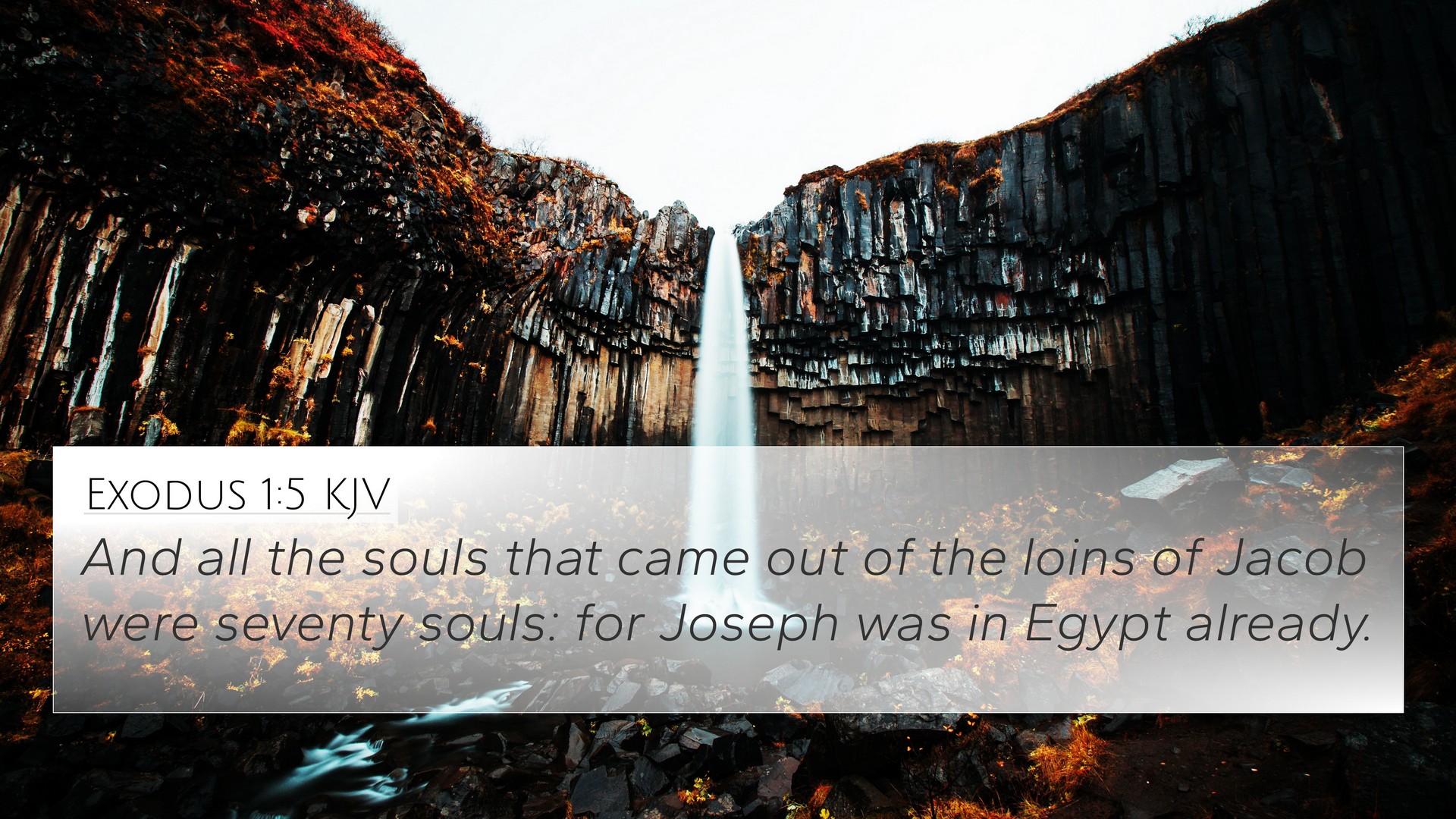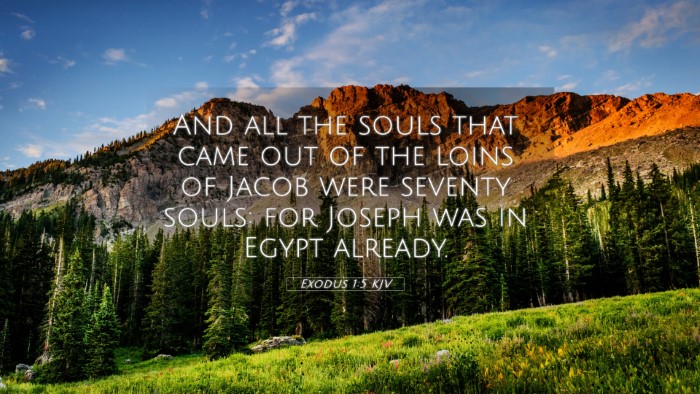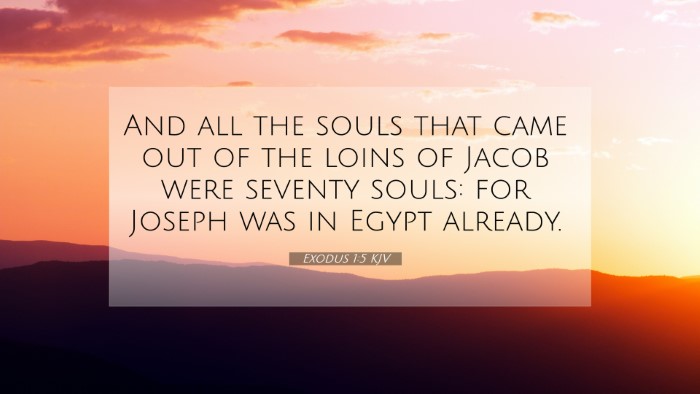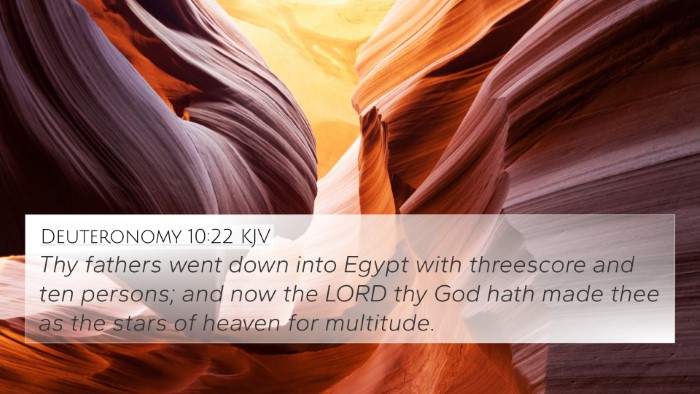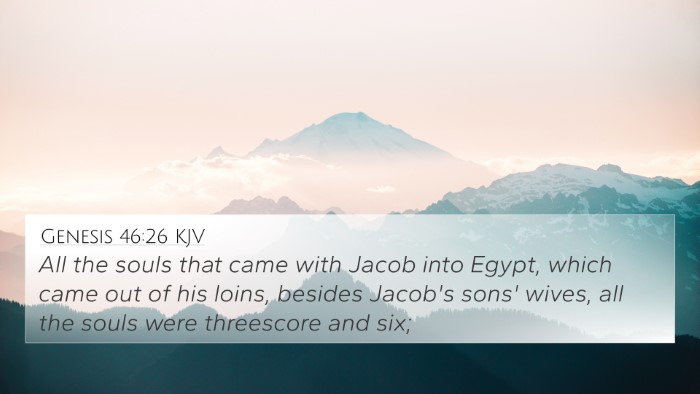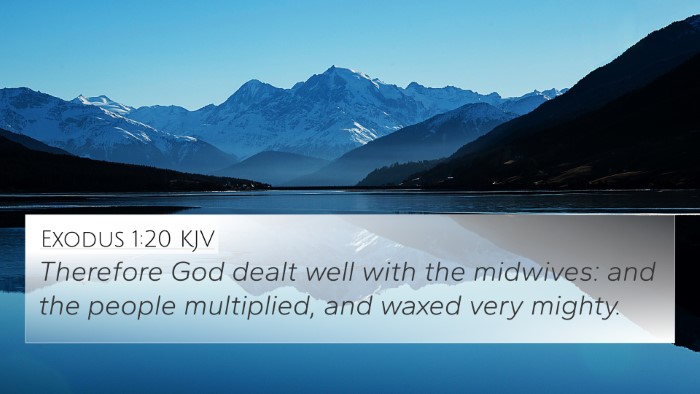Understanding Exodus 1:5
Exodus 1:5 states, "The number of Jacob's descendants was seventy. Joseph was already in Egypt." This verse serves as a significant marker in the narrative of the Israelites' journey and lays the foundation for their sojourn in Egypt.
In interpreting this verse, several public domain commentaries provide valuable insights:
-
Matthew Henry: Henry emphasizes the importance of the number seventy, noting it signifies fullness and completeness. This number represents the entirety of Jacob's family, essentially symbolizing the beginning of a new chapter in the Israelites' history. The mention of Joseph being already in Egypt highlights God's providence and how His plan was already set in motion before the family's arrival.
-
Albert Barnes: Barnes indicates that this statement confirms the fulfillment of God's promise to Jacob that his family would grow into a great nation. The precision of the number serves to illustrate the vastness of God's faithfulness. Barnes also points out that Joseph’s prior presence in Egypt was crucial as it provided an immediate connection and support for Jacob’s lineage when hardship struck.
-
Adam Clarke: Clarke notes the significance of this genealogy, asserting it serves as a reminder of Israel’s origin and God’s plan of salvation. He emphasizes that this small family would become a powerful nation and draws connections to the stories of growth and adversity that follow hereafter in Exodus.
Collectively, these commentaries provide a layered understanding of Exodus 1:5, focusing not only on the numerical significance but also on the narrative progression it signals in the wider Biblical context.
Bible Verse Cross-References
This verse connects with several other biblical texts, creating a rich tapestry of meaning through cross-referencing:
- Genesis 46:26-27 - Details on the number of Jacob's descendants and their travels to Egypt.
- Genesis 47:5-6 - Joseph’s role in leading his family to Pharaoh, highlighting God's orchestration.
- Genesis 15:13 - God’s prophetic message to Abraham about his descendants dwelling in a foreign land.
- Genesis 13:16 - The promise of making Abraham's descendants as numerous as the dust of the earth.
- Exodus 1:7 - The growth of the Israelites in Egypt, emphasizing the fulfillment of God's promise.
- Deuteronomy 10:22 - Moses recounting the great number of Israelites and their deliverance.
- Acts 7:14 - Stephen mentions Jacob’s family coming to Egypt, linking it to salvation history.
Each of these cross-references serves to deepen our understanding of Exodus 1:5 by linking the themes of growth, promise, and providence throughout the scriptures.
Comparative Bible Verse Analysis
In a comparative analysis, the connections between this verse and those that follow articulate a narrative of tribulation and future redemption. The establishment of the Israelites as a prominent group in Egypt sets up the subsequent events of oppression and eventual deliverance under Moses.
Using tools for Bible cross-referencing can reveal profound thematic ties. These connections serve to illustrate:
-
Thematic Bible Verse Connections: Examining the continuity in the Promises of God, seen in Genesis through to Exodus, reflects the unchanging nature of God’s intentions toward His people.
-
Bible Concordance: Utilizing a concordance can help track terms and significant numbers across scripture, illustrating patterns such as the number seventy, often symbolizing completeness in Biblical terms.
-
Identifying Connections Between Old and New Testament: The link between Old Testament themes of suffering and New Testament teachings of redemption provides a rich path for theological study.
As one engages with Exodus 1:5 in study, utilizing Bible cross-reference guides can streamline research and comprehension of the interconnectedness of scripture.
Conclusion
In summary, Exodus 1:5 presents rich contexts of God’s promises, the growth of a nation, and foreshadowing of trials that lead to divine deliverance. The intricate cross-references and thematic connections invite deeper engagement with scripture, enhancing both personal study and community discourse.
